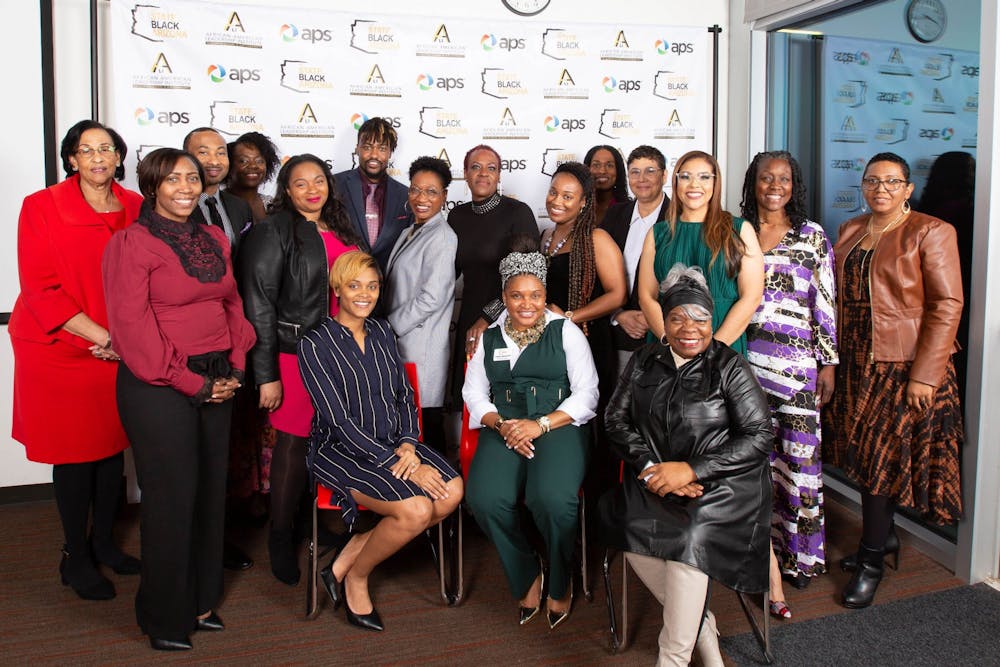The State of Black Arizona, an ASU-funded nonprofit that works on data collection, analysis and synthesis for issues affecting the Black community, continues to combat social and political challenges.
The organization, which obtained nonprofit status in 2017, aims to combat systemic challenges the Black community faces, said Teniqua Broughton, director of State of Black Arizona.
"Our goal really is to create a platform to synthesize data, demographics and research on issues and concerns that relate to the African American community," Broughton said. "The data is really intended to help support action-planning and form decision-making so we can make better solutions that improve the lives of all Arizonans."
Broughton said the National Urban League, a historic civil rights organization, requested in early 2009 a State of Black report be done on the greater Phoenix area. The State of Black report aims to disclose disparities and opportunities impacting the state's Black community.
Volume V, the State of Black Arizona's most recent report, is a guidebook the nonprofit created to guide economic, healthcare and employment decision-making in Arizona. The guidebook specifically focuses on the impact decisions have on the Black community.
Racial tensions in the U.S. have reached a staggering high. The majority of Americans believe relations between Black and white people have worsened over the past 20 years.
Scholars, academics and politicians have discussed the broader implications of systemic racism more frequently in recent years due to the death of multiple Black Americans at the hands of law enforcement.
Broughton said organizations like the State of Black Arizona are paramount "to tackle a lot of those systemic challenges."
ASU's involvement with the State of Black Arizona has been significant. The University is a platinum donor to the nonprofit, donating upward of $25,000 a year. Broughton said without ASU, the nonprofit may not be where it is today.
"People may not know that ASU has been rooted from the beginning as much as a number of other corporations and foundations," Broughton said.
She said Kenja Hassan, assistant vice president of government and community engagement at ASU, led the effort in establishing the State of Black Arizona with support from ASU.
Black Lives Matter Global Network, another civil rights organization, is often criticized for being divisive and polarizing. Broughton said the State of Black Arizona could be perceived similarly.
"When I think about people deciding: Is the story real?" Broughton said. "Is the narrative truth? The reality is that if we look at history and we understand what we constantly see in TV and media and how people are actually treated and have been treated. It becomes a choice for people that don’t look like me and are in the dominant culture."
Cases of lost Black history are not uncommon in the U.S. In a recent talk at ASU's Center on the Future of War, Caleb Gayle, a Black journalist and CEO of the National Conference on Citizenship, focused on his New York Times article covering the Tulsa Race Massacre. The event was co-sponsored by the Center for the Future of Arizona and the State of Black Arizona.
Sybil Francis, president and CEO for the Center for the Future of Arizona, who is also the wife of ASU President Michael Crow, explained the CFA's decision to host Gayle, citing the Tulsa Race Massacre as an important topic of discussion because details were historically withheld from textbooks.
The massacre resulted in the deaths of between 30 and 300 people in the Greenwood district, a prosperous and predominantly Black neighborhood in Oklahoma. The district also had the reputation of "Black Wall Street" because of its financial success.
Gayle said the ignorance toward the massacre was due to a historical subjugation of "a Black community that was growing at the margins of society."
"The fact of the matter is, for most of us, the Tulsa Race Massacre was useful and interesting in treating fodder," Gayle said. "When we were watching things like 'Watchmen' or even 'Lovecraft Country,' what we saw was the devastation of a small town."
Gayle also discussed his frustration with being so focused on race. He said being so focused on it all of the time can be draining.
"As a Black person, I would love to not spend all of my days reflecting on the trauma inflicted upon me," Gayle said. "However, I also know that in order to do the repair, I have to know where it hurts how much it hurts and how it got there in the first place."
Similarly, Broughton said, "I don't live in making my work or my life about race and pointing it out, but we live in a country where we have laws that have divided us for that."
Reach the reporter at trricha2@asu.edu and follow @therrealtristan on Twitter.
Like The State Press on Facebook and follow @statepress on Twitter.
Continue supporting student journalism and donate to The State Press today.




